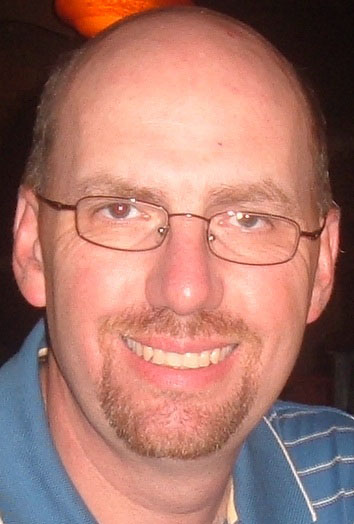Steffen Talks of First Amendment, Constitution Day

September 17, 2010
It’s always open season on the First Amendment in the United States. So as we observe Constitution Day at Simpson today it’s an especially good time to correct some of the misconceptions of our most cherished freedom.
That’s important now as we wrestle with whether Christians have the right to burn Korans on the anniversary of 9/11, whether Muslims have the right to build a community center near Ground Zero, or whether the followers of hateful pastor Fred Phelps have the right to publicly proclaim anti-gay messages at the funerals of the fallen of Iraq and Afghanistan.
The answer in each case, simply, is yes.
The problem is that many Americans don’t know that, and many who do know that don’t accept it. Our cultural right to freedom of expression, it seems, is much more tenuous than our legal right.
James Madison would be deeply disappointed: He’s the guy who, in addition to serving as fourth president of the United States, wrote the First Amendment in 1791. He insisted that the freedoms it protects be distinctively different than anywhere else in history.
“The right of freely examining public characters and measures, and of free communication among the people thereon,” he once wrote, “has ever been justly deemed the only effectual guardian of every other right.”
Translated to 2010 speak: If you can’t speak your mind, all of your other rights are pretty much bunk. I’d add this: If your neighbor can’t speak her mind, all of your rights are pretty much bunk, too.
Today’s climate isn’t necessarily different than at any other time in American history. At times, it’s been leftists who’ve been the targets of government censorship and public pressure to shut up. Today it’s often — but not always — right wingers who say things the public wish would go away.
What is different is the fear and loathing created by the past nine ugly years of American history, beginning in September 2001. We feel less secure and less trustful of the world, our government and each other. We’re less tolerant.
That’s given rise to all kinds of nonsense in the public mind:
* More than once lately, I’ve heard this: “Sure, I believe in the First Amendment for Muslims, but…” Usually, everything that comes after the “but” means that they really don’t believe in the First Amendment.
* About one-third of Americans don’t believe even that: 34 percent in a recent Freedom Forum study said that Muslims don’t have a right to build a mosque in New York City. More than half of self-identified Republicans felt the same way. They’re wrong.
* Radio host Laura Schlessinger recently announced she was quitting her radio show to “regain my First Amendment rights.” She’s wrong. No one tried to take Schlessinger off her show, not least the government. She quit because she didn’t like undergoing the same criticisms she nightly visits on her hapless callers.
* Nearly one out of five Americans think the First Amendment “goes too far” in protecting the freedoms it does protect. They’re wrong. Would they say the 14th Amendment goes too far in protecting equality?
Here’s what the First Amendment means: You have the right to express ideas — no matter how hateful, dangerous, wrong, offensive, upsetting, intolerant or simply foolish they may be. And the people who disagree with you have the same right.
We shouldn’t fear that.
We should celebrate it.
We need also to do a better job of teaching it: The same Freedom Forum study cited above also found that only 4 percent of Americans can correctly cite all of the five freedoms protected by the First Amendment. (Can you?)
We’ll do our part tonight at Simpson at 7 p.m. in Great Hall when Barbara Mack, a journalism professor at Iowa State University, is our guest to deliver the annual Constitution Day lecture. She’ll be talking about many of these same issues, and others. Our students and staff will find it amusing in parts, perhaps infuriating in others.
That’s what freedom of expression is all about in America. Celebrate it with us tonight.




